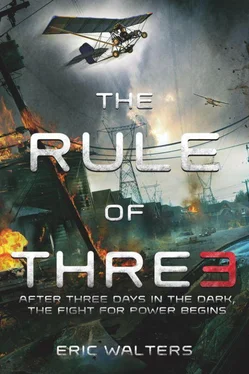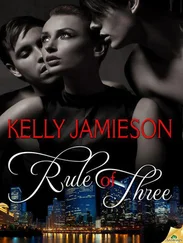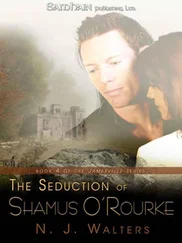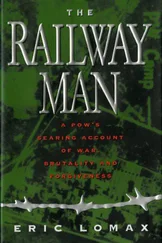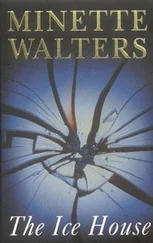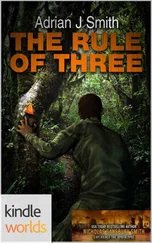“I think we can scavenge the components necessary to build some greenhouses.” Herb turned to Mr. Nicholas. “What would we need?”
“Panes of glass and supports, metal or wood, and caulking, nails, or even glue.”
“We need to put the scavenging teams on it,” Herb said.
“Does anybody object to that?” the judge asked.
People nodded or said a few words in agreement.
“You’d mentioned limited varieties of food,” Councilwoman Stevens said. “What exactly is being planted?”
“I’m concentrating on potatoes.”
“Why potatoes?” she asked.
“We have the seed, it’s a high-yield crop, and it is less dependent on rainfall. Besides, I can even get two harvests in this season.”
“But we can’t just live on potatoes.”
“Actually, you can for a long time,” Herb said.
“But that’s not all that’s being planted. There will be beans, cucumbers, tomatoes, carrots, and assorted squashes that I’ve already put in. And if there were greenhouses I’d be able to expand the range and the length of time they’d be available,” Mr. Peterson said.
“You’ll have those greenhouses,” Herb said.
As far as I was concerned, Herb saying he would have them built was as good as them already being built.
“Excellent,” the judge said. “Now, returning to the agenda: starting next week we will be convening a civilian court three afternoons a week to deal with internal disputes.”
“Are there that many disputes?” Councilwoman Stevens asked.
“So far there have been a few, but we can expect many more to surface in the weeks to come,” my mother said.
“What types of disputes are taking place?” the councilwoman asked.
“So far just minor things,” the judge said.
“But it’s inevitable that conflicts will arise when you put this many people together in such a confined space, and put them under pressure,” my mother said. “What makes it more dangerous is that many of the people are now in possession of weapons.”
“That sounds ominous,” the councilwoman said.
“Actually,” the judge said, “it would probably be good if you were willing to sit on the panel.”
“I’d be more than willing to do that,” she said.
“An excellent addition,” Herb said, and my mother nodded.
“Now, shall we turn to the unfortunate altercation on the south of the neighborhood?” the judge asked.
“I think we successfully showed that we can defend the neighborhood,” Herb said.
I looked over at Howie. His eyes were on the floor. He looked not proud but ashamed. I guess that look could have been interpreted in other ways.
“I applaud you for defending the neighborhood,” the judge said, “but I never consider it a success when people are killed or injured. Three dead, right?”
“Three heavily armed men who attempted to attack the neighborhood were killed, and we have no idea how many were wounded and escaped,” Herb said.
“An unwise tactic on their part,” the councilwoman said.
“They probably didn’t realize the extent of our defenses and the training of the people on guard,” Herb replied.
“But there were no deaths on our side, correct?” the judge asked.
“Howie, do you want to answer that one?” Herb asked.
Howie looked up. “Nobody even wounded.”
I knew our people had been in no danger unless they were shooting at each other.
“I think what we’re doing in preparation has really paid off,” the judge said.
“Obviously,” Councilwoman Stevens agreed.
“There are, however, other issues that have significant implications for the ongoing survival of our neighborhood,” Herb said.
Was he going to tell everybody what had really happened?
“There was a terrible cost,” Herb said. “A cost that nobody seems to want to mention.”
My heart skipped a beat. He was going to tell them. How were people going to react when they found out we’d killed— murdered —people who hadn’t even attacked the neighborhood?
“The sentries fired approximately three hundred rounds of ammunition,” Herb said.
“That’s a lot of ammunition,” my mother said.
“We simply cannot afford to lose that many rounds every time there is an assault on our walls,” Herb said. “If they continue to discharge that much ammunition every time we’re threatened, we’ll be in a position where we won’t be able to defend ourselves in the future. I’m going to suggest that Howie, the captain, and I sit down and work out protocol around firing weapons. I think we have to limit how many rounds of ammunition are given to each sentry and to insist on nobody opening fire without permission.”
“Counting the rounds is easy; training people to hold their fire is not so easy,” Howie said.
“Not easy, but it can be done,” Herb said. “I have every faith in you and know you can train them. I was also wondering if you think the attack could have been averted had there been enough light to see.”
“Definitely,” Howie said. “If there was light we could have seen them coming and probably they would have been less likely to attack.”
“Then let me meet with our engineering people and see if we can come up with a way to establish perimeter lighting to be turned on if needed,” Herb said. “Mr. Nicholas, does that sound workable?”
“If we only needed it for short bursts, like spotlights, we could draw power from car batteries.”
“We have plenty of those available out there,” Mr. Saunders added. “We just need lights.”
“Another item for the scavenging team to procure,” Mr. Gomez added.
“We may not have to go outside the neighborhood to get those lights,” Herb said. “Let’s look internally first. I have an idea about where we might find some. Other than that, I was wondering if you could give us an update on what the sentries are seeing from the walls.”
“There are still lots of people out there, generally moving either west or north, away from the city and toward the country,” Howie said.
“Mainly families?” Herb asked.
“Family groups and what we’re calling wolf packs.”
“What’s a wolf pack?” Councilwoman Stevens asked.
“Groups, mainly young and male, who look like they’re up to no good.”
“Often groups divide themselves into two categories, prey and predators,” Herb said. “Are you seeing more weapons?”
“Almost everybody seems to have some sort of crude weapon, but there are also many more guns visible.”
“That’s to be expected,” Herb explained. “If somebody has a gun they want to display it to let people know they can defend themselves.”
“We’re also noticing more vehicles,” Howie said. “Old cars and trucks, motorcycles, minibikes—basically anything that can still move seems to be out there. Also, there are lots and lots of bicycles.”
“Anything else you’ve noticed?”
“We’re continually being asked for food or water,” Howie said. “I know it’s hard on the guards to say no, especially if it’s women and children.”
“That is hard,” Herb said.
“They just seem so desperate,” Howie said.
“They are desperate,” Herb said. “But you have to remember we’re just a lifeboat.”
Howie looked puzzled.
“This neighborhood is a lifeboat in a storm we can’t stop. Only so many people can be in our boat, no matter how many swimmers you see bobbing about in the ocean. If you try to pull in too many, you sink. You save nobody, including those who were in the boat. Our priority has to be those who are in the boat, because we can’t save all of those who need to be in the boat. Our only exception has been when those on the outside can make our lifeboat stronger and more self-sustaining.”
Читать дальше
